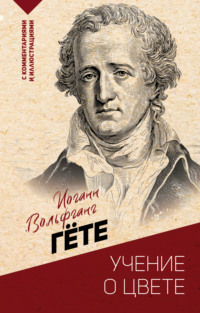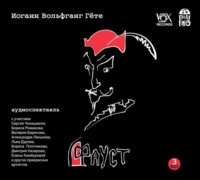 полная версия
полная версияEgmont
Machiavel. It is not the first time that he has testified to you his just satisfaction.
Regent. But the first time that it is a mere rhetorical figure.
Machiavel. I do not understand you.
Regent. You soon will. – For after this preamble he is of opinion that without soldiers, without a small army indeed, – I shall always cut a sorry figure here! We did wrong, he says, to withdraw our troops from the provinces at the remonstrance of the inhabitants; a garrison, he thinks, which shall press upon the neck of the burgher, will prevent him, by its weight, from making any lofty spring.
Machiavel. It would irritate the public mind to the last degree.
Regent. The king thinks, however, do you hear? – he thinks that a clever general, one who never listens to reason, will be able to deal promptly with all parties; – people and nobles, citizens and peasants; he therefore sends, with a powerful army, the Duke of Alva.
Machiavel. Alva?
Regent. You are surprised.
Machiavel. You say, he sends, he asks doubtless whether he should send.
Regent. The king asks not, he sends.
Machiavel. You will then have an experienced warrior in your service.
Regent. In my service? Speak out, Machiavel.
Machiavel. I would not anticipate you.
Regent. And I would I could dissimulate. It wounds me – wounds me to the quick. I had rather my brother would speak his mind than attach his signature to formal epistles drawn up by a Secretary of state.
Machiavel. Can they not comprehend? —
Regent. I know them both within and without. They would fain make a clean sweep; and since they cannot set about it themselves, they give their confidence to any one who comes with a besom in his hand. Oh, it seems to me as if I saw the king and his council worked upon this tapestry.
Machiavel. So distinctly!
Regent. No feature is wanting. There are good men among them. The honest Roderigo, so experienced and so moderate, who does not aim too high, yet lets nothing sink too low; the upright Alonzo, the diligent Freneda, the steadfast Las Vargas, and others who join them when the good party are in power. But there sits the hollow-eyed Toledan, with brazen front and deep fire-glance, muttering between his teeth about womanish softness, ill-timed concession, and that women can ride trained steeds, well enough, but are themselves bad masters of the horse, and the like pleasantries, which, in former times, I have been compelled to hear from political gentlemen.
Machiavel. You have chosen good colours for your picture.
Regent. Confess, Machiavel, among the tints from which I might select, there is no hue so livid, so jaundice-like, as Alva's complexion, and the colour he is wont to paint with. He regards every one as a blasphemer or traitor, for under this head they can all be racked, impaled, quartered, and burnt at pleasure. The good I have accomplished here appears as nothing seen from a distance, just because it is good. Then he dwells on every outbreak that is past, recalls every disturbance that is quieted, and brings before the king such a picture of mutiny, sedition, and audacity, that we appear to him to be actually devouring one another, when with us the transient explosion of a rude people has long been forgotten. Thus he conceives a cordial hatred for the poor people; he views them with horror, as beasts and monsters; looks around for fire and sword, and imagines that by such means human beings are subdued.
Machiavel. You appear to me too vehement; you take the matter too seriously. Do you not remain Regent?
Regent. I am aware of that. He will bring his instructions. I am old enough in state affairs to understand how people can be supplanted, without being actually deprived of office. First, he will produce a commission, couched in terms somewhat obscure and equivocal; he will stretch his authority, for the power is in his hands; if I complain, he will hint at secret instructions; if I desire to see them, he will answer evasively; if I insist, he will produce a paper of totally different import; and if this fail to satisfy me, he will go on precisely as if I had never interfered. Meanwhile he will have accomplished what I dread, and have frustrated my most cherished schemes.
Machiavel. I wish I could contradict you.
Regent. His harshness and cruelty will again arouse the turbulent spirit, which, with unspeakable patience, I have succeeded in quelling; I shall see my work destroyed before my eyes, and have besides to bear the blame of his wrongdoing.
Machiavel. Await it, your Highness.
Regent. I have sufficient self-command to remain quiet. Let him come; I will make way for him with the best grace ere he pushes me aside.
Machiavel. So important a step thus suddenly? Regent. 'Tis harder than you imagine. He who is accustomed to rule, to hold daily in his hand the destiny of thousands, descends from the throne as into the grave. Better thus, however, than linger a spectre among the living, and with hollow aspect endeavour to maintain a place which another has inherited, and already possesses and enjoys.
SCENE II. – Clara's dwelling
Clara and her Mother
Mother. Such a love as Brackenburg's I have never seen; I thought it was to be found only in romance books.
Clara (walking up and down the room, humming a song). With love's thrilling rapture What joy can compare!
Mother. He suspects thy attachment to Egmont; and yet, if thou wouldst but treat him a little kindly, I do believe he would marry thee still, if thou wouldst have him.
Clara (sings).
BlissfulAnd tearful,With thought-teeming brain;HopingAnd fearingIn passionate pain;Now shouting in triumph,Now sunk in despair; —With love's thrilling raptureWhat joy can compare!Mother. Have done with such baby-nonsense!
Clara. Nay, do not abuse it; 'tis a song of marvellous virtue. Many a time have I lulled a grown child to sleep with it.
Mother. Ay! Thou canst think of nothing but thy love. If it only did not put everything else out of thy head. Thou shouldst have more regard for Brackenburg, I tell thee. He may make thee happy yet some day.
Clara. He?
Mother. Oh, yes! A time will come! You children live only in the present, and give no ear to our experience. Youth and happy love, all has an end; and there comes a time when one thanks God if one has any corner to creep into.
Clara (shudders, and after a pause stands up). Mother, let that time come – like death. To think of it beforehand is horrible! And if it come! If we must – then – we will bear ourselves as we may. Live without thee, Egmont! (Weeping.) No! It is impossible.
[Enter Egmont (enveloped in a horseman's cloak, his hat drawn over his face).
Egmont. Clara!
Clara (utters a cry and starts back). Egmont! (She hastens towards him.) Egmont! (She embraces and leans upon him.) O thou good, kind, sweet Egmont! Art thou come? Art thou here indeed!
Egmont. Good evening, Mother?
Mother. God save you, noble sir! My daughter has well-nigh pined to death, because you have stayed away so long; she talks and sings about you the live-long day.
Egmont. You will give me some supper?
Mother. You do us too much honour. If we only had anything —
Clara. Certainly! Be quiet, Mother; I have provided everything; there is something prepared. Do not betray me, Mother.
Mother. There's little enough.
Clara. Never mind! And then I think when he is with me I am never hungry; so he cannot, I should think, have any great appetite when I am with him.
Egmont. Do you think so? (Clara stamps with her foot and turns pettishly away.) What ails you?
Clara. How cold you are to-day! You have not yet offered me a kiss. Why do you keep your arms enveloped in your mantle, like a new-born babe? It becomes neither a soldier nor a lover to keep his arms muffled up.
Egmont. Sometimes, dearest, sometimes. When the soldier stands in ambush and would delude the foe, he collects his thoughts, gathers his mantle around him, and matures his plan and a lover —
Mother. Will you not take a seat, and make yourself comfortable? I must to the kitchen, Clara thinks of nothing when you are here. You must put up with what we have.
Egmont. Your good-will is the best seasoning.
[Exit Mother.
Clara. And what then is my love?
Egmont. Just what thou wilt.
Clara. Liken it to anything, if you have the heart.
Egmont. But first. (He flings aside his mantle, and appears arrayed in a magnificent dress.)
Clara. Oh heavens!
Egmont. Now my arms are free! (Embraces her.)
Clara. Don't! You will spoil your dress. (She steps back.) How magnificent! I dare not touch you.
Egmont. Art thou satisfied? I promised to come once arrayed in Spanish fashion.
Clara. I had ceased to remind you of it; I thought you did not like it – ah, and the Golden Fleece!
Egmont. Thou seest it now.
Clara. And did the emperor really hang it round thy neck!
Egmont. He did, my child! And this chain and Order invest the wearer with the noblest privileges. On earth I acknowledge no judge over my actions, except the grand master of the Order, with the assembled chapter of knights.
Clara. Oh, thou mightest let the whole world sit in judgment over thee. The velvet is too splendid! and the braiding! and the embroidery! One knows not where to begin.
Egmont. There, look thy fill.
Clara. And the Golden Fleece! You told me its history, and said it is the symbol of everything great and precious, of everything that can be merited and won by diligence and toil. It is very precious – I may liken it to thy love; – even so I wear it next my heart; – and then —
Egmont. What wilt thou say?
Clara. And then again it is not like.
Egmont. How so?
Clara. I have not won it by diligence and toil, I have not deserved it.
Egmont. It is otherwise in love. Thou dost deserve it because thou hast not sought it – and, for the most part, those only obtain love who seek it not.
Clara. Is it from thine own experience that thou hast learned this? Didst thou make that proud remark in reference to thyself? Thou, whom all the people love?
Egmont. Would that I had done something for them! That I could do anything for them! It is their own good pleasure to love me.
Clara. Thou hast doubtless been with the Regent to-day?
Egmont. I have.
Clara. Art thou upon good terms with her?
Egmont So it would appear. We are kind and serviceable to each other.
Clara. And in thy heart?
Egmont. I like her. True, we have each our own views; but that is nothing to the purpose. She is an excellent woman, knows with whom she has to deal, and would be penetrating enough were she not quite so suspicious. I give her plenty of employment, because she is always suspecting some secret motive in my conduct when, in fact, I have none.
Clara. Really none?
Egmont. Well, with one little exception, perhaps. All wine deposits lees in the cask in the course of time. Orange furnishes her still better entertainment, and is a perpetual riddle. He has got the credit of harbouring some secret design; and she studies his brow to discover his thoughts, and his steps, to learn in what direction they are bent.
Clara. Does she dissemble?
Egmont. She is Regent – and do you ask?
Clara. Pardon me; I meant to say, is she false?
Egmont. Neither more nor less than everyone who has his own objects to attain.
Clara. I should never feel at home in the world. But she has a masculine spirit, and is another sort of woman from us housewives and sempstresses. She is great, steadfast, resolute.
Egmont. Yes, when matters are not too much involved. For once, however, she is a little disconcerted.
Clara. How so?
Egmont. She has a moustache, too, on her upper lip, and occasionally an attack of the gout. A regular Amazon.
Clara. A majestic woman! I should dread to appear before her.
Egmont. Yet thou art not wont to be timid! It would not be fear, only maidenly bashfulness.
(Clara casts down her eyes, takes his hand, and leans upon him.)
Egmont. I understand thee, dearest! Thou mayst raise thine eyes. (He kisses her eyes.)
Clara. Let me be silent! Let me embrace thee! Let me look into thine eyes, and find there everything – hope and comfort, joy and sorrow! (She embraces and gazes on him.) Tell me! Oh, tell me! It seems so strange – art thou indeed Egmont! Count Egmont! The great Egmont, who makes so much noise in the world, who figures in the newspapers, who is the support and stay of the provinces?
Egmont. No, Clara, I am not he.
Clara. How?
Egmont. Seest thou, Clara? Let me sit down! (He seats himself, she kneels on a footstool before him, rests her arms on his knees and looks up in his face.) That Egmont is a morose, cold, unbending Egmont, obliged to be upon his guard, to assume now this appearance and now that; harassed, misapprehended and perplexed, when the crowd esteem him light-hearted and gay; beloved by a people who do not know their own minds; honoured and extolled by the intractable multitude; surrounded by friends in whom he dares not confide; observed by men who are on the watch to supplant him; toiling and striving, often without an object, generally without a reward. O let me conceal how it fares with him, let me not speak of his feelings! But this Egmont, Clara, is calm, unreserved, happy, beloved and known by the best of hearts, which is also thoroughly known to him, and which he presses to his own with unbounded confidence and love. (He embraces her.) This is thy Egmont.
Clara. So let me die! The world has no joy after this!
ACT IV
SCENE I. – A Street
Jetter, Carpenter
Jetter. Hist! neighbour, – a word!
Carpenter. Go your way and be quiet.
Jetter. Only one word. Is there nothing new?
Carpenter. Nothing, except that we are anew forbidden to speak.
Jetter. How?
Carpenter. Step here, close to this house. Take heed! Immediately on his arrival, the Duke of Alva published a decree, by which two or three, found conversing together in the streets, are without trial, declared guilty of high treason.
Jetter. Alas!
Carpenter. To speak of state affairs is prohibited on pain of perpetual imprisonment.
Jetter. Alas for our liberty!
Carpenter. And no one, on pain of death, shall censure the measures of government.
Jetter. Alas, for our heads!
Carpenter. And fathers, Mothers, children, kindred, friends, and servants, are invited, by the promise of large rewards, to disclose what passes in the privacy of our homes, before an expressly appointed tribunal.
Jetter. Let us go home.
Carpenter. And the obedient are promised that they shall suffer no injury, either in person or estate.
Jetter. How gracious! – I felt ill at ease the moment the duke entered the town. Since then, it has seemed to me, as though the heavens were covered with black crape, which hangs so low, that one must stoop down to avoid knocking one's head against it.
Carpenter. And how do you like his soldiers? They are a different sort of crabs from those we have been used to.
Jetter. Faugh! It gives one the cramp at one's heart to see such a troop march down the street. As straight as tapers, with fixed look, only one step, however many there may be; and when they stand sentinel, and you pass one of them, it seems as though he would look you through and through; and he looks so stiff and morose, that you fancy you see a task-master at every corner. They offend my sight. Our militia were merry fellows; they took liberties, stood their legs astride, their hats over their ears, they lived and let live; these fellows are like machines with a devil inside them.
Carpenter. Were such an one to cry, "Halt!" and level his musket, think you one would stand?
Jetter. I should fall dead upon the spot.
Carpenter. Let us go home!
Jetter No good can come of it. Farewell.
[Enter Soest.
Soest. Friends! Neighbours! Carpenter. Hush! Let us go.
Soest. Have you heard?
Jetter. Only too much!
Soest. The Regent is gone.
Jetter. Then Heaven help us.
Carpenter. She was some stay to us.
Soest. Her departure was sudden and secret. She could not agree with the duke; she has sent word to the nobles that she intends to return. No one believes it, however.
Carpenter. God pardon the nobles for letting this new yoke be laid upon our necks. They might have prevented it. Our privileges are gone.
Jetter. For Heaven's sake not a word about privileges. I already scent an execution; the sun will not come forth; the fogs are rank.
Soest. Orange, too, is gone.
Carpenter. Then are we quite deserted!
Soest, Count Egmont is still here.
Jetter. God be thanked! Strengthen him, all ye saints, to do his utmost; he is the only one who can help us.
[Enter Vansen.
Vansen. Have I at length found a few brave citizens who have not crept out of sight?
Jetter. Do us the favour to pass on.
Vansen. You are not civil.
Jetter. This is no time for compliments. Does your back itch again? are your wounds already healed?
Vansen. Ask a soldier about his wounds? Had I cared for blows, nothing good would have come of me.
Jetter. Matters may grow more serious.
Vansen. You feel from the gathering storm a pitiful weakness in your limbs, it seems.
Carpenter. Your limbs will soon be in motion elsewhere, if you do not keep quiet.
Vansen. Poor mice! The master of the house procures a new cat, and ye are straight in despair! The difference is very trifling; we shall get on as we did before, only be quiet.
Carpenter. You are an insolent knave.
Vansen. Gossip! Let the duke alone. The old cat looks as though he had swallowed devils, instead of mice, and could not now digest them. Let him alone, I say; he must eat, drink, and sleep, like other men. I am not afraid if we only watch our opportunity, At first he makes quick work Of it; by-and-by, however, he too will find that it is pleasanter to live in the larder, among flitches of bacon, and to rest by night, than to entrap a few solitary mice in the granary. Go to! I know the stadtholders.
Carpenter. What such a fellow can say with impunity! Had I said such a thing, I should not hold myself safe a moment.
Vansen. Do not make yourselves uneasy! God in heaven does not trouble himself about you, poor worms, much less the Regent.
Jetter. Slanderer!
Vansen. I know some for whom it would be better if, instead of their own high spirits, they had a little tailor's blood in their veins.
Carpenter. What mean you by that?
Vansen. Hum! I mean the count.
Jetter. Egmont! What has he to fear?
Vansen. I'm a poor devil, and could live a whole year round on what he loses in a single night; yet he would do well to give me his revenue for a twelvemonth, to have my head upon his shoulders for one quarter of an hour.
Jetter. You think yourself very clever; yet there is more sense in the hairs of Egmont's head, than in your brains.
Vansen. Perhaps so! Not more shrewdness, however. These gentry are the most apt to deceive themselves. He should be more chary of his confidence.
Jetter. How his tongue wags! Such a gentleman!
Vansen. Just because he is not a tailor.
Jetter. You audacious scoundrel!
Vansen. I only wish he had your courage in his limbs for an hour to make him uneasy, and plague and torment him, till he were compelled to leave the town.
Jetter. What nonsense you talk; why he's as safe as a star in heaven.
Vansen. Have you ever seen one snuff itself out? Off it went!
Carpenter. Who would dare to meddle with him?
Vansen. Will you interfere to prevent it? Will you stir up an insurrection if he is arrested?
Jetter. Ah!
Vansen. Will you risk your ribs for his sake?
Soest. Eh!
Vansen (mimicking them). Eh! Oh! Ah! Run through the alphabet in your wonderment. So it is, and so it will remain. Heaven help him!
Jetter. Confound your impudence. Can such a noble, upright man have anything to fear?
Vansen. In this world the rogue has everywhere the advantage. At the bar, he makes a fool of the judge; on the bench, he takes pleasure in convicting the accused. I have had to copy out a protocol, where the commissary was handsomely rewarded by the court, both with praise and money, because through his cross-examination, an honest devil, against whom they had a grudge, was made out to be a rogue.
Carpenter. Why, that again is a downright lie. What can they want to get out of a man if he is innocent?
Vansen. Oh, you blockhead! When nothing can be worked out of a man by cross-examination, they work it into him. Honesty is rash and withal somewhat presumptuous; at first they question quietly enough, and the prisoner, proud of his innocence, as they call it, comes out with much that a sensible man would keep back! then, from these answers the inquisitor proceeds to put new questions, and is on the watch for the slightest contradiction; there he fastens his line; and, let the poor devil lose his self-possession, say too much here, or too little there, or, Heaven knows from what whim or other, let him withhold some trifling circumstance, or at any moment give way to fear – then we're on the right track, and, I assure you, no beggar-woman seeks for rags among the rubbish with more care than such a fabricator of rogues, from trifling, crooked, disjointed, misplaced, misprinted, and concealed facts and information, acknowledged or denied, endeavours at length to patch up a scarecrow, by means of which he may at least hang his victim in effigy; and the poor devil may thank Heaven if he is in a condition to see himself hanged.
Jetter. He has a ready tongue of his own.
Carpenter. This may serve well enough with flies. Wasps laugh at your cunning web.
Vansen. According to the kind of spider. The tall duke, now, has just the look of your garden spider; not the large-bellied kind, they are less dangerous; but your long-footed, meagre-bodied gentleman, that does not fatten on his diet, and whose threads are slender indeed, but not the less tenacious.
Jetter. Egmont is knight of the Golden Fleece, who dare lay hands on him? He can be tried only by his peers, by the assembled knights of his order. Your own foul tongue and evil conscience betray you into this nonsense.
Vansen. Think you that I wish him ill? I would you were in the right. He is an excellent gentleman. He once let off, with a sound drubbing, some good friends of mine, who would else have been hanged. Now take yourselves off! begone, I advise you! Yonder I see the patrol again commencing their round. They do not look as if they would be willing to fraternize with us over a glass. We must wait, and bide our time. I have a couple of nieces and a gossip of a tapster; if after enjoying themselves in their company, they are not tamed, they are regular wolves.
SCENE II. – The Palace of Eulenberg, Residence of the Duke of Alva
Silva and Gomez (meeting)
Silva. Have you executed the duke's commands?
Gomez. Punctually. All the day-patrols have received orders to assemble at the appointed time, at the various points that I have indicated. Meanwhile, they march as usual through the town to maintain order. Each is ignorant respecting the movements of the rest, and imagines the command to have reference to himself alone; thus in a moment the cordon can be formed, and all the avenues to the palace occupied. Know you the reason of this command?
Silva. I am accustomed blindly to obey; and to whom can one more easily render obedience than to the duke, since the event always proves the wisdom of his commands?
Gomez. Well! Well! I am not surprised that you are become as reserved and monosyllabic as the duke, since you are obliged to be always about his person; to me, however, who am accustomed to the lighter service of Italy, it seems strange enough. In loyalty and obedience, I am the same old soldier as ever; but I am wont to indulge in gossip and discussion; here, you are all silent, and seem as though you knew not how to enjoy yourselves. The duke, methinks, is like a brazen tower without gates, the garrison of which must be furnished with wings. Not long ago I heard him say at the table of a gay, jovial fellow that he was like a bad spirit-shop, with a brandy sign displayed; to allure idlers, vagabonds, and thieves.









